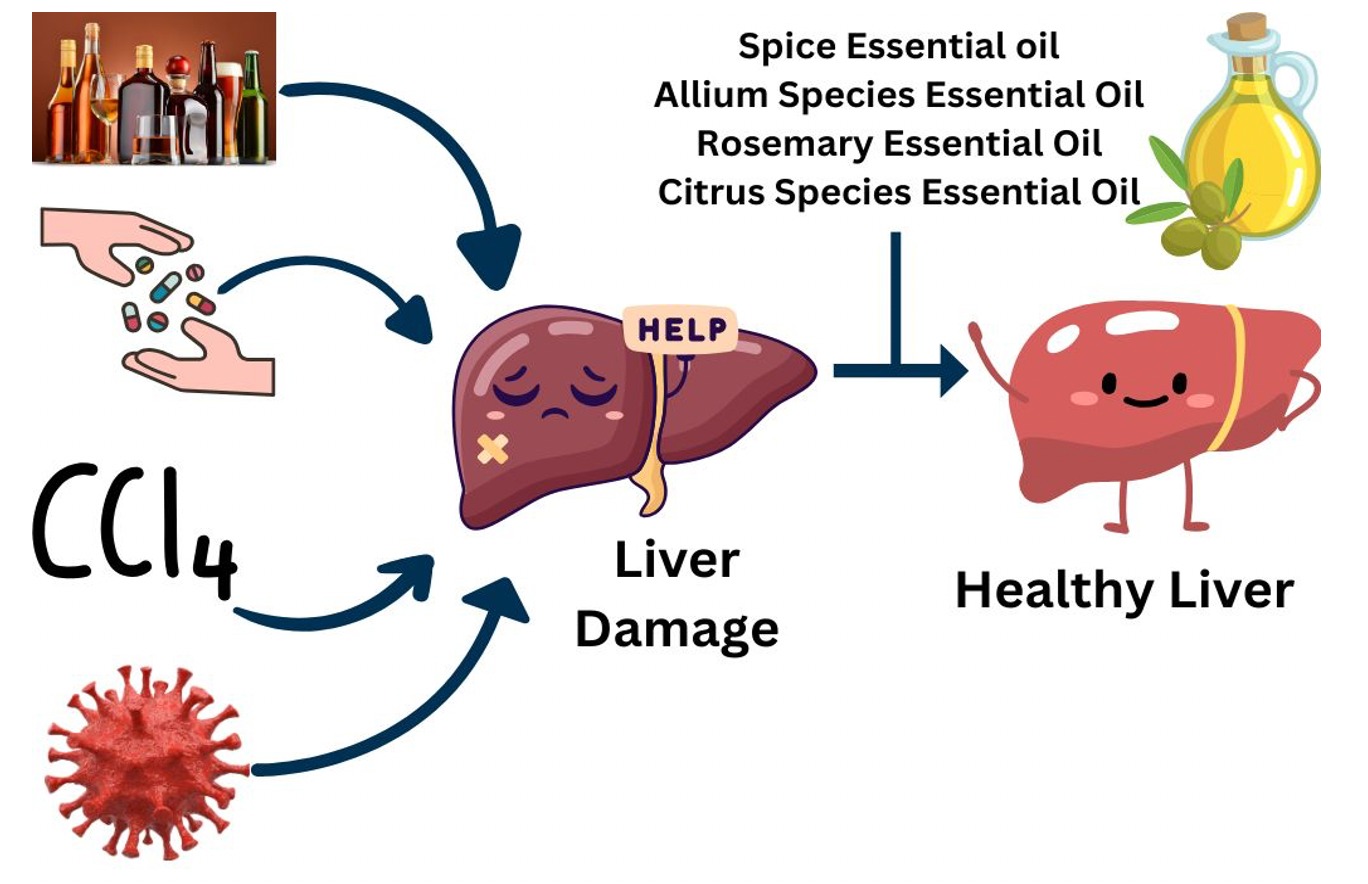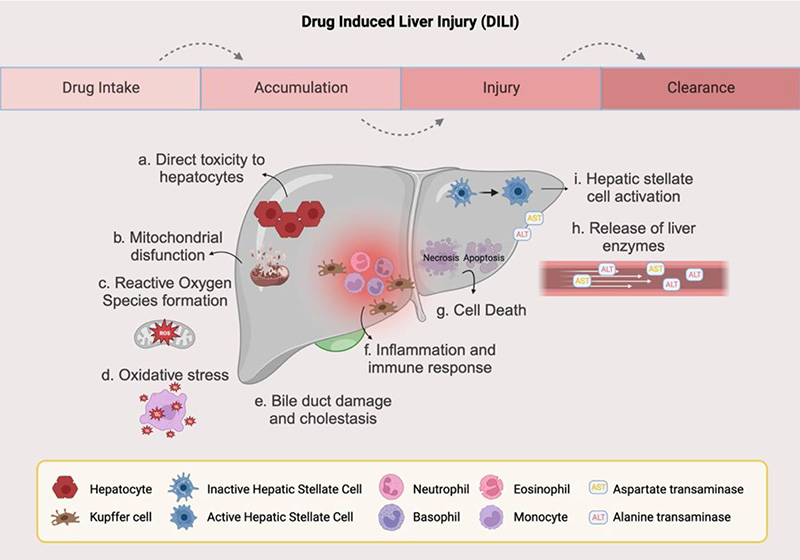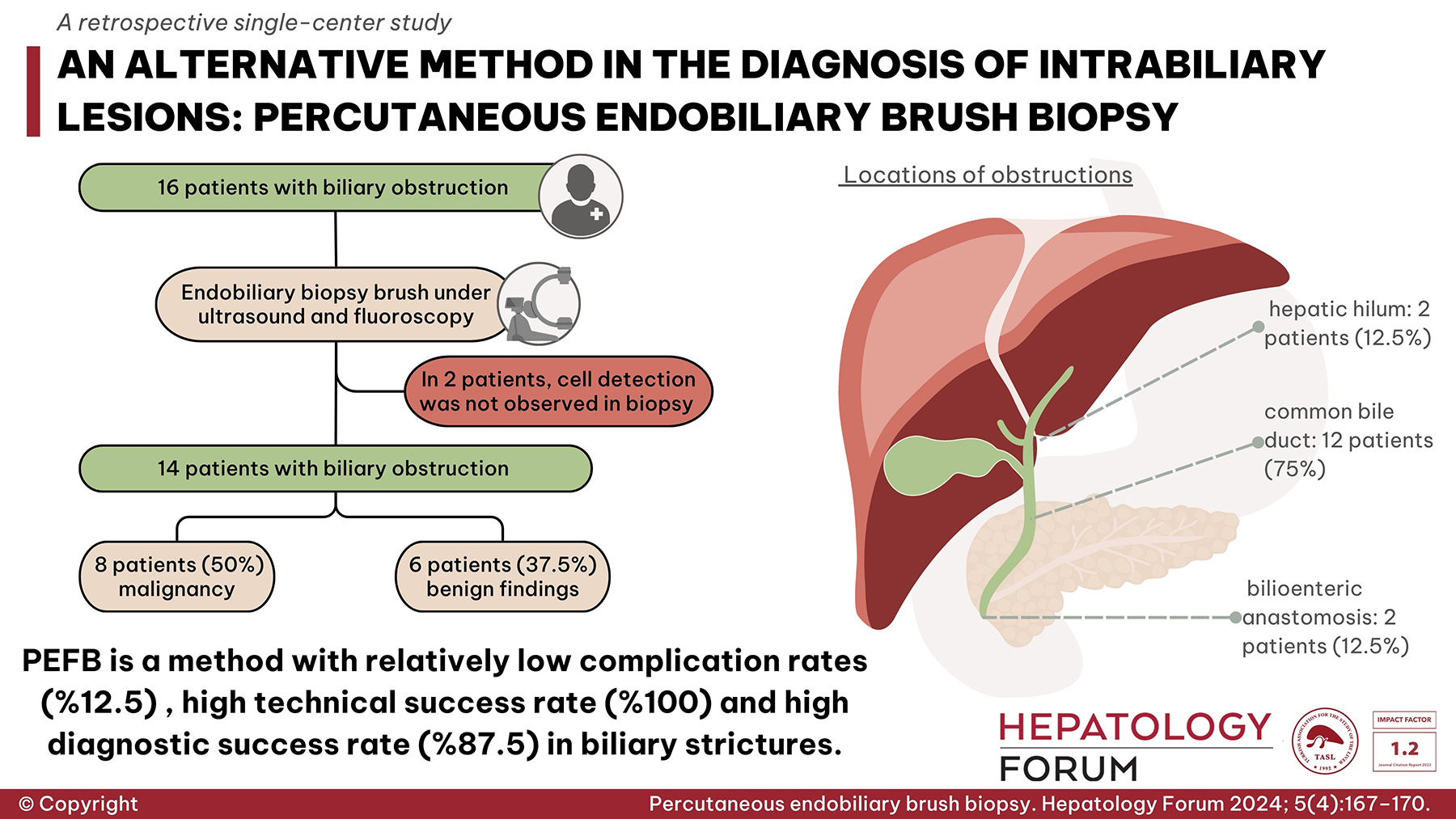2Harran University, Faculty of Medicine, Department of Radiology, Şanlıurfa, Turkey
3Kanuni Sultan Süleyman Training and Research Hospital, İstanbul, Turkey
Abstract
Background and Aims: This study aimed to investigate the tumor response and effect of treatment on survival in patients diagnosed with hepatocellular carcinoma (HCC) undergoing drug-eluting transarterial chemoembolization (DEB-TACE).
Material and Methods: 40 patients who underwent DEB-TACE between March 2018 and November 2020 were retrospectively analyzed. The patients were followed up with abdominal computed tomography, serum albumin, bilirubin, prothrombin time, and α-fetoprotein values. European Association for Study of the Liver criteria were used to evaluate the treatment response.
Results: A total of 70 TACE sessions were performed in 40 patients with HCC. The etiology of the patients was chronic hepatitis B vırus (n=32), secondary biliary cirrhosis (n=2), cryptogenic (n=2), chronic hepatitis C vırus (n=4). Based on TACE response, complete response was observed in 22 patients, partial response in 8 patients, and progression in 10 patients. Liver transplantation was performed in 4 patients who developed complete response. In addition, the formation of new nodules was observed in 8 patients during the follow-up period, whereas 29 patients survived and 11 died.
Conclusion: In this study, it was found that DEB-TACE had a positive effect on the survival of patients diagnosed with HCC who could not be surgically treated.





 Mehmet Kolu1
Mehmet Kolu1 









